Danny Pudi has seen success recently in his career, with roles such as Huey in Ducktales, and as one of Mythic Quest's best characters, Brad. Still, Pudi is best known for his iconic as his performance as Abed Nadir on the NBC series, Community.
Abed stole the hearts of fans, due in part to his propensity to view everything - including social interaction - through the lens of pop culture TV/Movie tropes. Abed, being the main contributor of movie references for which the series was known, had his share of good and bad; they can range from surface-level to truly thematic and intrinsic to the series.
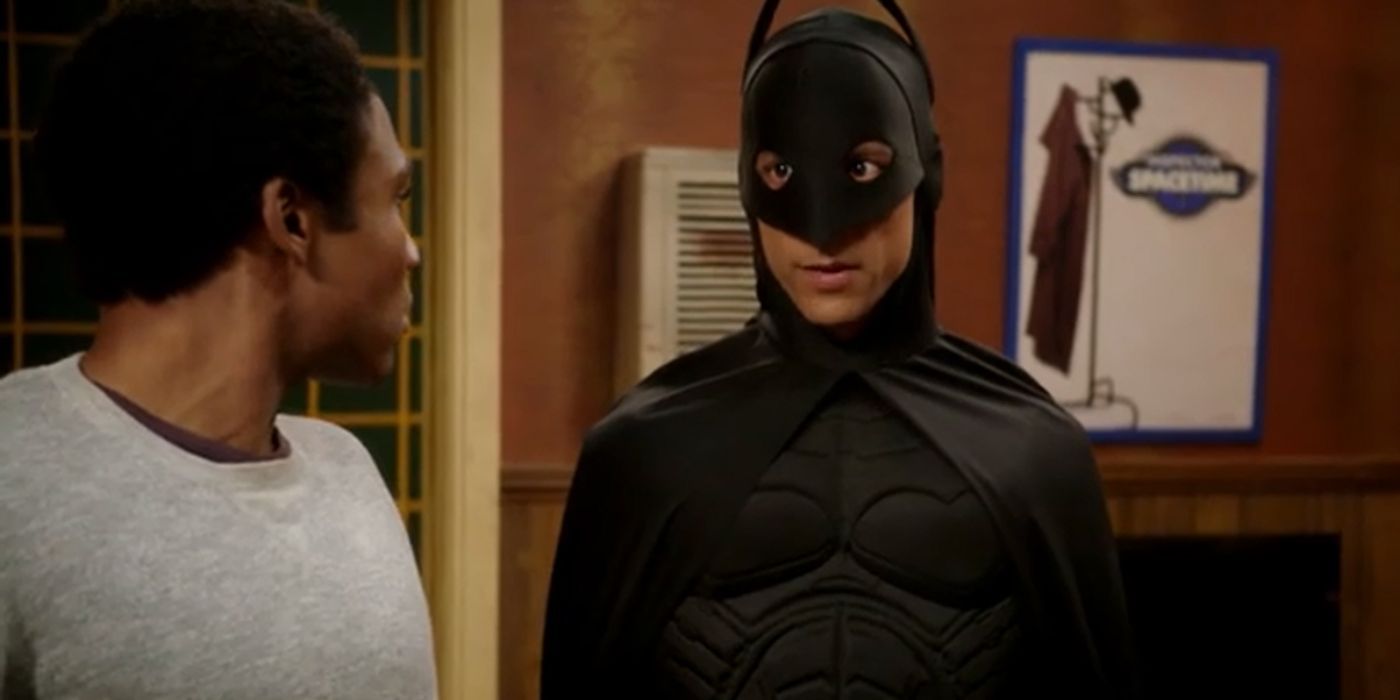
Abed’s appearance as Batman in “Introduction to Statistics” in season 1 is a fun play on Christopher Nolan’s Batman Begins. After saving the day, Abed makes a rambling, incoherent speech that mirrors Nolan’s own philosophical jargon. Later, in season 3’s “Foosball and Nocturnal Vigilantism,” Abed’s Batman reappears as he investigates the destruction of his signed copy of The Dark Knight.
What ensues is a series of antics wherein Abed stumbles around aimlessly accusing his neighbor all while wearing his Batman costume. In both instances, Abed is a college student playing at being batman with the unbridled shamelessness and joy of a child. To quote Christian Bale’s supposed signature, “Abed is Batman now.”
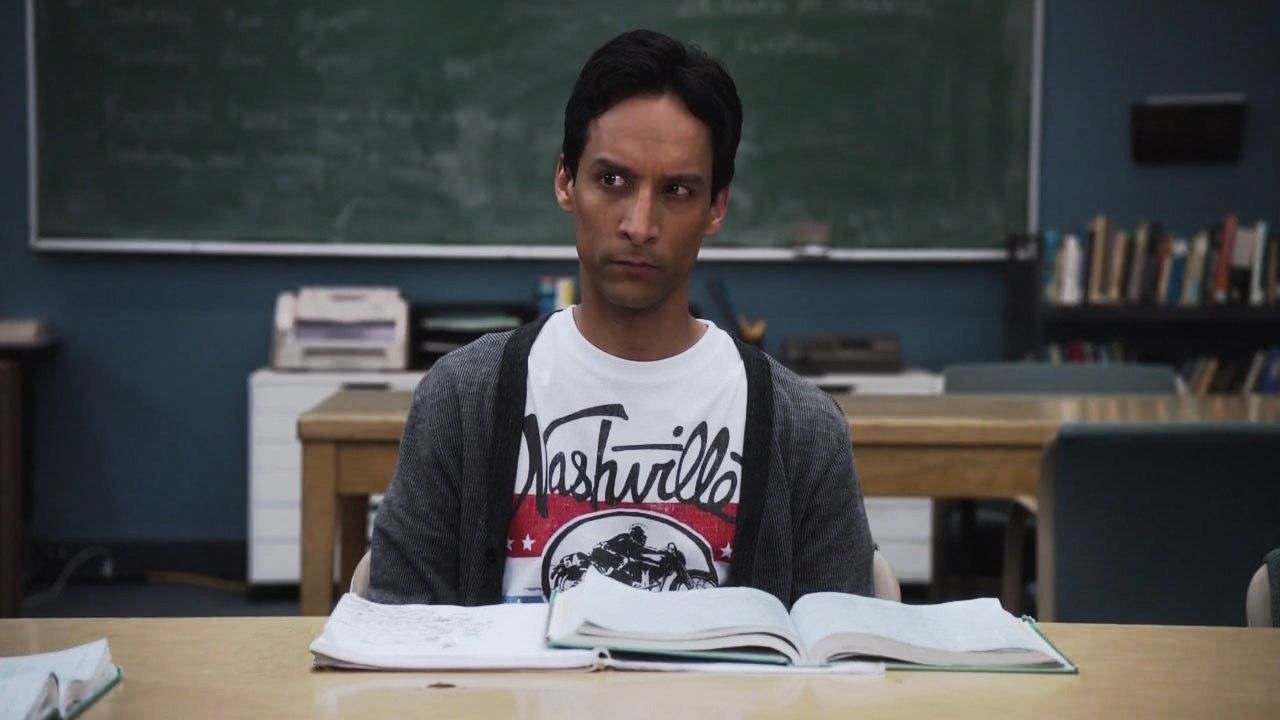
In “The Science of Illusion,” a subplot follows Annie and Shirley as they investigate a school prank gone wrong. Abed takes a literal backseat for this plotline, entertained by the conflict of Annie and Shirley both vying for the role of ‘Bad Cop.’ He remains passive until he sees Dean Pelton not quite cutting it as the role of police commissioner. Abed steps in to reprimand the duo for their behavior and tells them to hand over their badges, reminiscent of the same scene found in many other Buddy Cop action movies. This reference, if fleeting, is an amusing one, as well as a way to shake up and examine the strong relationships in Community.
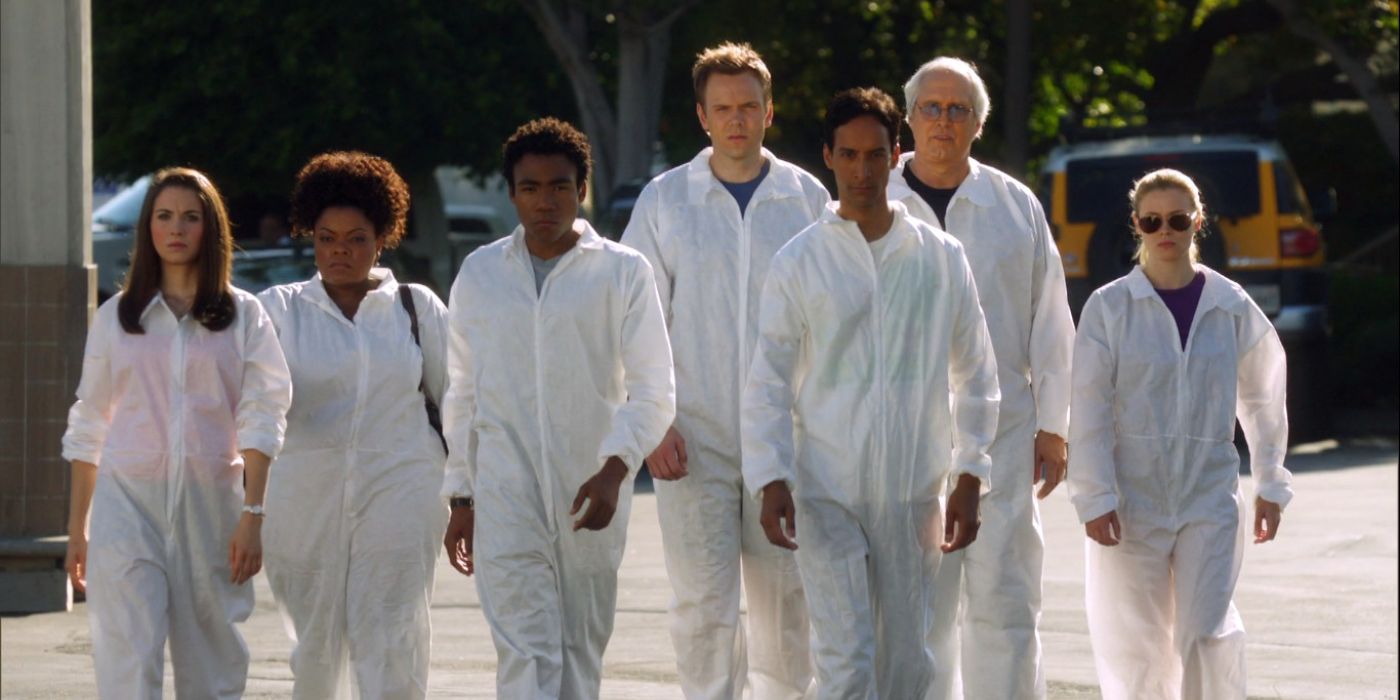
In season 2’s “Basic Rocket Science,” the study group is recruited to clean an old space launch simulator for Greendale’s space program. In an act of sabotage by rival City College, the simulator is towed, with the group (sans-Abed) trapped inside. Abed is disappointed, wanting to help crew the fake space shuttle, but quickly settles into a role as mission command trying to get the crew back safely. In doing so the episode adopts the straight-faced, dramatic tone of Ron Howard’s Apollo 13 while letting the silliness of it happening in a community college on an outdated KFC ride be the joke on its own without playing it up too much.
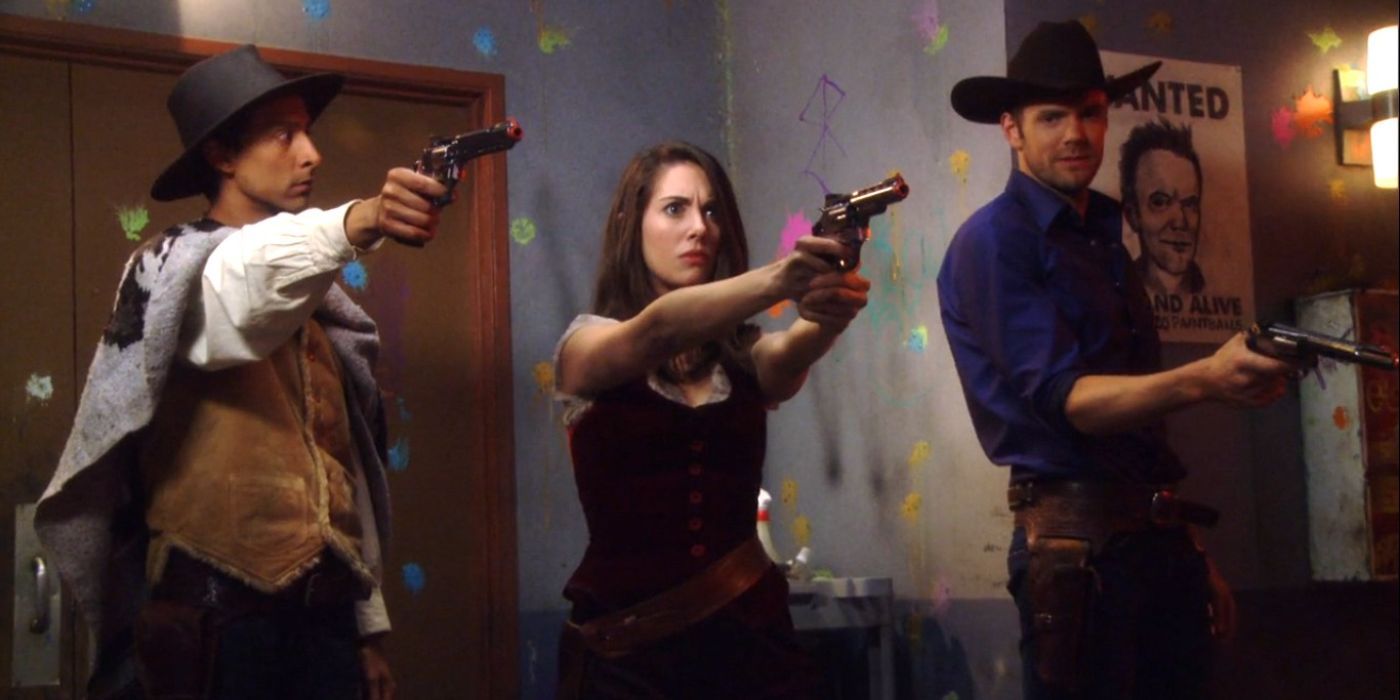
In the first of a two-parter, “A Fistful of Paintballs,” Greendale spirals out of control for the second time during a school-wide paintball game. In this episode, Abed settles into his role as the stoic Man with No Name as portrayed by Clint Eastwood in the Dollars Trilogy. It’s an entertaining role for him as Abed is usually the loveable goof of the group, along with Troy. The climax is a Sergio Leone-style showdown with paintball guns, which is also the culmination of a dramatic falling-out with the group over Pierce.
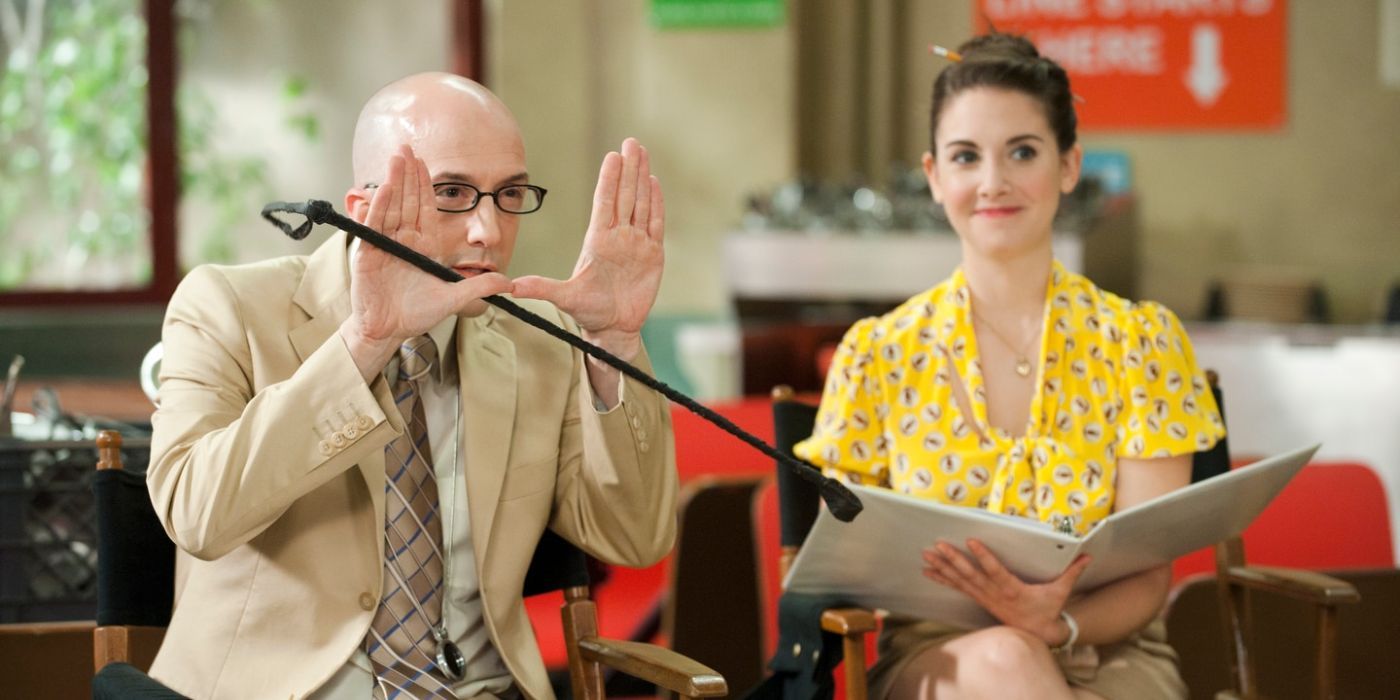
Dean Pelton descends into madness in this season 3 episode, “Documentary Filmmaking: Redux.” The Dean takes it upon himself to film a new commercial for Greendale, and the production is fraught with issues born entirely out of the Dean’s neurotic desire to film the perfect school ad. Heart of Darkness: A Filmmaker’s Apocalypse is explicitly named several times throughout the episode, even by Luis Guzman who makes a guest appearance. Though Abed makes little to no physical appearance in this episode, he is the catalyst for its style and presentation. And, he is the one in the end who saves the Dean from himself through his editing of the documentary and commercial.
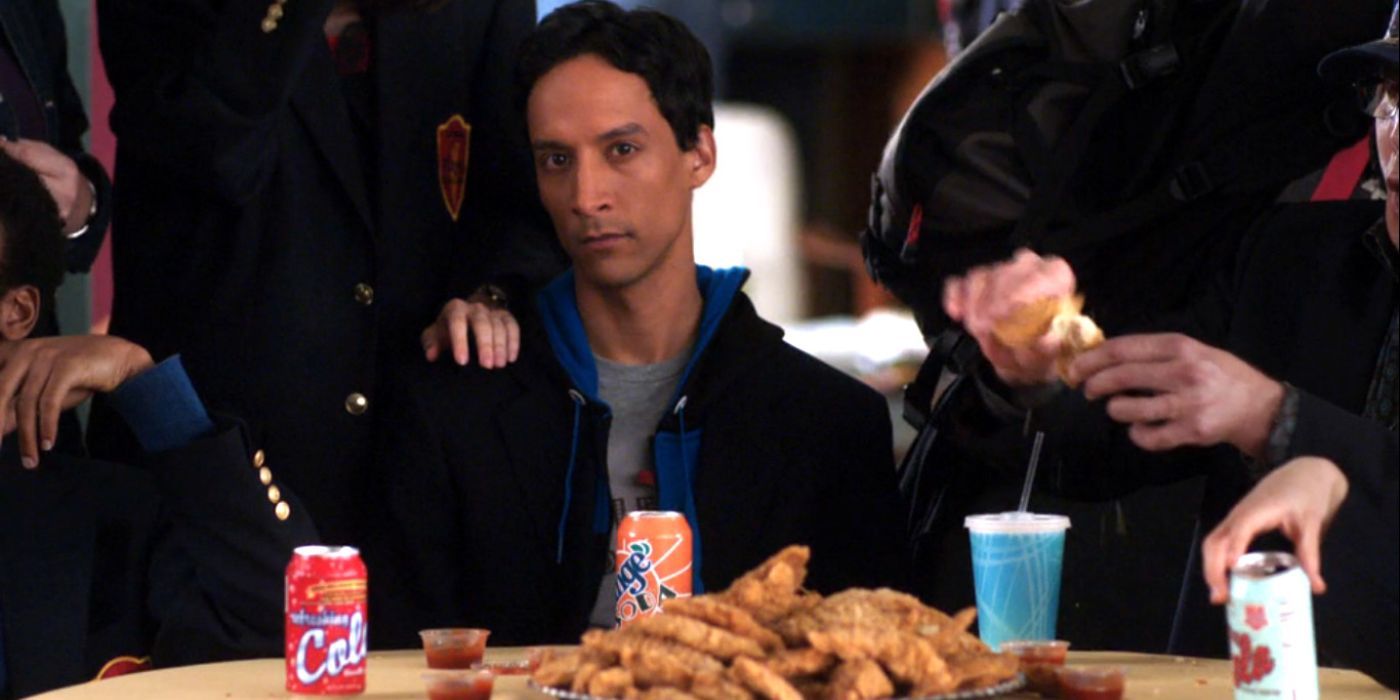
Community tackles the mafia movie genre with “Contemporary American Poultry” in season 1. In it, Abed helps the group start a chicken finger distribution ring that involves quid-pro-quo favors, akin to the mob. As Abed puts it, they stopped being a family and started being a “family, in italics.”
The episode recreates scenes like closing of the door in The Godfather, and uses the stylistic trappings of Goodfellas with the use of voiceover. This development puts Abed in a position of power in the group that supersedes Jeff’s, leading to a confrontation where Jeff puts an end to the chicken fingers game and has a heart-to-heart with Abed. This episode uses the movie reference to explore Abed’s disconnect from neurotypical people and the frustration that brings him, and in the end, it does bring him and Jeff closer together.
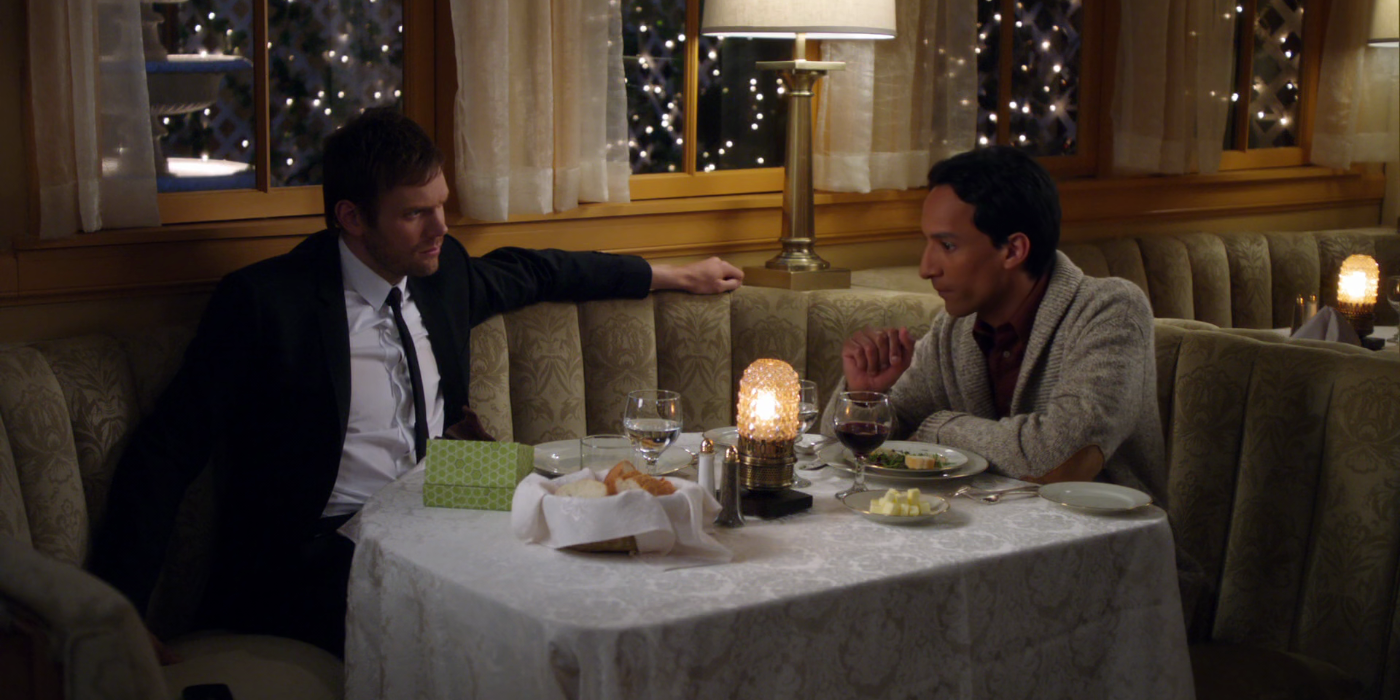
In an unexpected twist, season 2’s “Critical Film Studies” couples a Pulp Fiction reference with a My Dinner with Andre reference, with the latter taking over as the driving narrative of the episode. In it, Abed acts uncharacteristically normal in an attempt to reconnect with Jeff over a birthday dinner at a fancy restaurant.
This reference is an odd one, as My Dinner with Andre is nowhere near as well known as Pulp Fiction, but the show utilizes the reference for some decent character development. Abed comes off quite vulnerable here, as he expresses concern over losing his friends because of his neurodivergence.
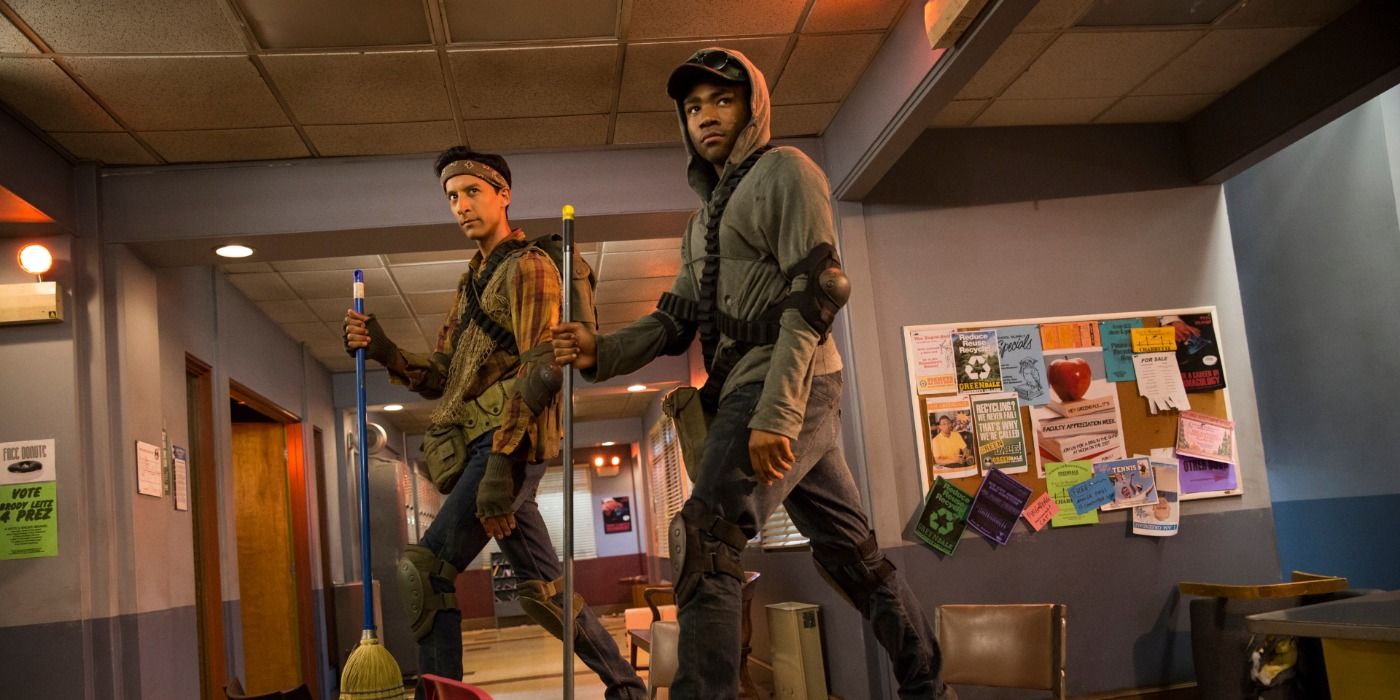
In the Greendale tradition, this reference marks another instance where a simple game causes the school to descend into utter chaos. Season 5’s “Geothermal Escapism” sees a school-wide game of ‘The Floor is Lava’ turn Greendale into a post-apocalyptic hellscape a la Mad Max or Water World. The conceit is a fun gimmick, as it’s entertaining to watch the humans of Greendale find creative ways to survive in a game of death and avoid touching the floor - it even gives some hints as to which Community character might win Squid Game.
But this Mad Max reference also serves as a vehicle to express Abed’s reluctance to say goodbye to his best friend, Troy. Abed is known for using movie references to cope with reality, so the transition to normalcy at the end of the episode makes for a heartfelt goodbye to Troy, one of many Community characters who left the show too soon.
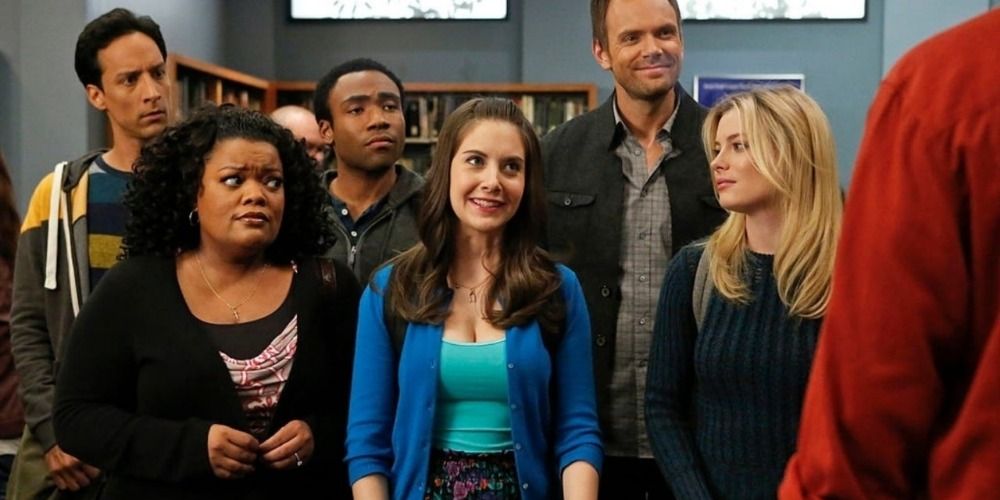
Abed references The Breakfast Club a couple of times throughout the series, once in “Communication Studies” where he and Jeff get drunk together in a dance montage. But, more impactfully, it is referenced in the Pilot episode. Out of his desire to adhere to movie tropes, Abed attempts to fit the study group into the mold set by the classic John Hughes movie, even performing Bender's monologue verbatim in one of the most iconic Community scenes.
Community itself is analogous to The Breakfast Club, as it follows a group of misfits who normally would not interact in their day-to-day lives and watches their relationship bloom. Though this reference is an obvious one, it’s one that works to tie in thematically to the tone of the show.

In one of the more interesting stylistic shake-ups in the series, “Abed’s Uncontrollable Christmas” in season 2 is an episode that is entirely stop motion animated in the style of Rankin/Bass holiday specials. The group indulges Abed in his search for the meaning of Christmas while he suppresses the sad news that his mother has moved on with a new family.
In the end, Abed discovers that “The meaning of Christmas is the idea that Christmas has meaning.” This sounds like just a clever turn of phrase, but it ties in well to the thesis of Community; that what brings people together may not have any inherent meaning, but the fact that it brings them together gives it meaning enough.
from ScreenRant - Feed https://ift.tt/3nkH4xO


0 Comments